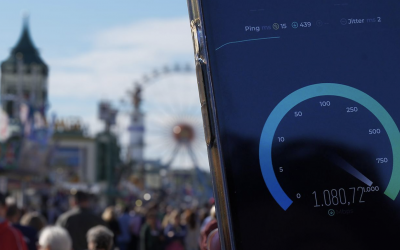The final quarter of 2024 revealed a decoupling of the north and an economic downturn in Bavaria
In the final quarter of 2024, economic output increased quarter-on-quarter in only five of Germany’s 16 states. According to the Ifo Institute’s analysis (https://www.ifo.de), the situation was better in Lower Saxony (plus 1.4 percent), Mecklenburg-Western Pomerania (plus 1.1 percent), Schleswig-Holstein (plus 1.0 percent), as well as in Hesse (plus 0.8 percent) and Hamburg (zero percent).
Growth through armaments
‘Industry in the north is decoupling itself from the overall German trend, with the upturn in the armaments industry playing a central role here. In Hesse, things are going particularly well for financial and business service providers,’ said ifo analyst Robert Lehmann.
In Bavaria, Berlin and Saarland, GDP fell by 0.3 per cent in each case compared to the previous quarter. The weakness of the Bavarian economy in the first two quarters thus continued; according to official statistics, Bavaria will see a decline in economic output of 1.0 per cent for the year as a whole.
Energy costs are a stumbling block
In Baden-Württemberg, GDP fell by 0.4 per cent compared to the previous quarter. In North Rhine-Westphalia, the economy shrank by 0.6 per cent. ‘As in Rhineland-Palatinate, this is an expression of a relatively higher proportion of energy-intensive industries,’ says Lehmann. Saxony came in last in the fourth quarter.



